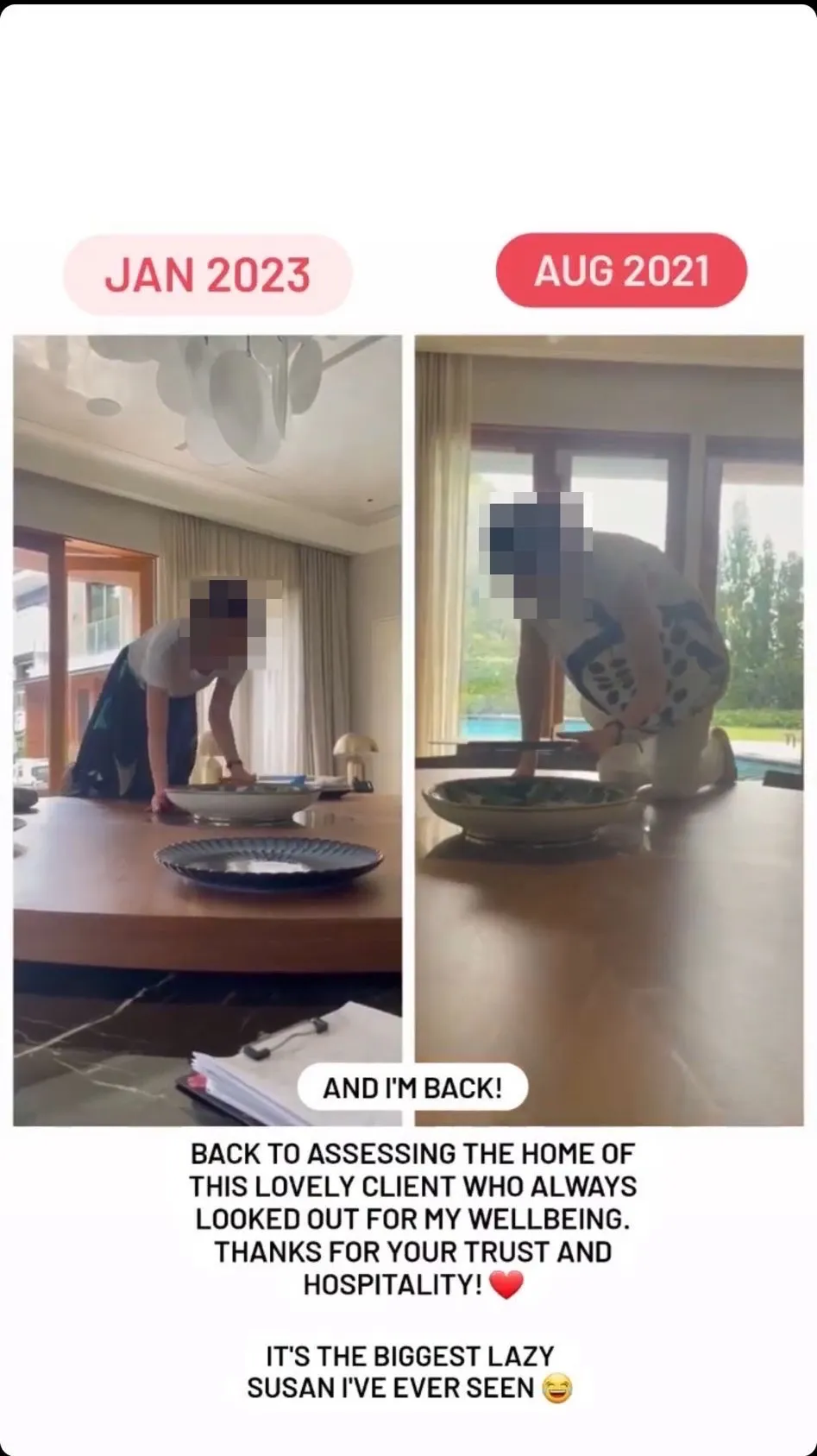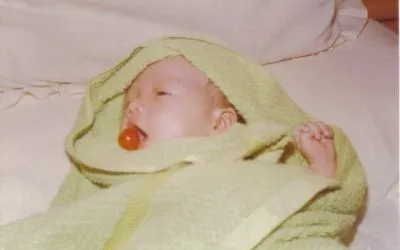First and foremost, please let me be clear that this post’s intent and agenda are purely for education and awareness. As much as I’m a Feng Shui practitioner myself, this post isn’t to get more business because it should be quite clear that my Feng Shui philosophy is different from most, if not all other practitioners.
I’m not the Feng Shui master who is meant for everyone. This should be clear by now.
The names and numbers in the above image were blurred out obvious reasons, although some cases are so severe that it went on national news. Whatever it is, I’m just here to share my thoughts and make people aware of the pitfalls when buying a new house and looking to engage a Feng Shui master.
Is Feng Shui Bogus Theory And A Scam?
My industry doesn’t have a very good reputation. The general perception of Chinese metaphysics practitioners, more commonly known as “Feng Shui Masters”, is that we are a bunch of scammers out to hoodwink people with bogus theories that cannot be proven by science.
I could give an intellectual response to that and define what “science” is, “the pursuit and application of knowledge and understanding of the natural and social world following a systematic methodology based on evidence.” In some ways, Feng Shui can be ‘proven’ by science if enough data is collected, but there are also things about Feng Shui that are beyond science.
A more rebellious response to people who think Feng Shui is a sham is that people are free to believe what they wish to believe. Some people feel Chinese metaphysics and astrology are scams, but if you think about it, religion is no different – it deals with the spiritual and ethereal, and these are things we cannot see or comprehend and mostly rely on people’s faith. We discuss the notion of gods and deities when none have seen one before.
I’m not interested in debating whether BaZi, Chinese astrology, or Feng Shui is a scam or not. People are free to decide what they wish to believe in.
That Doesn’t Mean The Industry Doesn’t Have Scammers
Suppose you believe that Chinese astrology and Feng Shui are real, that doesn’t mean there aren’t scammers in this industry. I won’t try to define what a “scammer” is or isn’t. I think people should know the definition by now.

Let’s not talk about proficiency for the time being and just talk about intent. It should be clear that astrology’s purpose is to help improve the quality of people’s lives and show people how to live effectively. That should be the aspiration of astrology or Feng Shui practitioners. It’s extremely sad to see that some people choose to outright scam others using Chinese metaphysics as a form of packaging.
The above is why people always think of the word “scam” or “scammer” whenever Chinese astrology or Feng Shui is mentioned. All I can say is that it’s a pity, especially when astrology and Feng Shui were once respected fields in the past and a field only knowledgeable individuals could practice.
Your Disadvantage As A Feng Shui Client
Most people engage a Feng Shui master, knowing absolutely nothing about the field. There are several services that people rarely engage in, such as lawyers and hopefully doctors, but in the list of services that one does not engage in often, Feng Shui is most likely the one people are the most clueless about.
Many people, including readers of this blog, have absolutely no background knowledge of Chinese metaphysics or Feng Shui other than through hearsay from friends or whatever they get from the media during Chinese New Year. People are in an extremely vulnerable position to be taken advantage of because someone out there will be making use of this and turning it into a career.
Is Feng Shui about colours and items? If you’re capable of critical thinking, this shouldn’t even be a debate.
My Friends And Clients Do Feed Me Information
One of the perks of knowing metaphysics is knowing who you can and should keep around you and who will likely end up being good friends with you. Many of these ex-clients-turned-friends have either gone to another practitioner before or are part of an industry that uses Chinese metaphysics a lot.
One such industry is real estate, naturally. One of them shared something with me that shouldn’t surprise anyone.
It’s Easy To Pass Off As A Feng Shui Master

The above is a group chat of real estate agents, and I wanted to let everyone know how far Chinese metaphysics has deviated from its origins. It was once a highly regarded tool that could improve people’s quality of life, but now, it’s a tool for trickery and deceit.
You can tell how little people think of feng shui if someone saves a contact as a “Con Artist Feng Shui Master”. ‘Feng Shui masters’ are even asked to participate in the whole sales process by enticing the person to purchase the house.
Should you be surprised that this is happening? You shouldn’t. It has been happening for a long time, but for some reason, no one has spoken about it.
One of the lines that I will always repeat is『七分命理不出门,三分风水走天下』。This means that if you know only 30% of feng shui, you can declare yourself a Grandmaster. No one will know whether you know your stuff because feng shui cannot be verified on the spot. However, if you know 70% of forecasting methods like BaZi, Zi Wei Dou Shu, or astrology in general, you still wouldn’t declare yourself a master because people can test you on the spot.
Unfortunately, Feng Shui has also become a clown act. Take a look:

For whatever reason, a Feng Shui ‘master’, or some like to call themselves “Feng Shui Lifehackers”, needs to climb onto a table to take measurements for the house – I do not know. I only feel second-hand embarrassment for the person in the above picture. I also can’t help but feel that the person who engaged her is a bit of a dense individual to allow this Feng Shui practitioner to climb onto the dining table not once but twice.
Anyone, and I mean ANYONE, can read a few books, attend some watered-down course, set up a website, declare a lineage and mention that he or she has an “X” number of years of experience. This person can immediately participate in this as a career, which is why there are so many practitioners around.
If you want to know whether a practitioner is good, find out if he or she is proficient at BaZi or other forms of astrology. It’s the fastest and most effective litmus test for laymen because there is no reason why a practitioner can do Feng Shui but not BaZi or Qi Men Dun Jia. But again, most people don’t know how to test a practitioner, and most practitioners will deny that request – even myself.
No one can help you discern who is real and who is not. You have to pray that your life experiences have helped you develop an eye for reading people and that your insecurities and desires don’t hinder your good judgment. I can only say that the kind of practitioner you go to is somewhat fated, just like who your spouse is or what kind of house you end up in.
How Do You Know If A Feng Shui Master Is A Scam?
I don’t feel this is that difficult. Anyone who has been betrayed or lied to before should have been taught a painful lesson about the existence of bad people and the signs to look out for.
Here are some things I feel would be able to guide you in your decisions:
- Focus on the intention behind the practitioner’s actions. This tells you everything. Promising you’ll strike the lottery or buy fake social media followers to appear more popular – all these tell you something about the person.
- Is he or she genuinely interested in Chinese history and philosophy? Because I don’t see how someone will be serious about what they do if they aren’t interested in the origins and theory.
- Is it a business? Or is it a calling? Most Feng Shui practitioners promote items and sell them as cures, but is feng shui really about that?
These are just some of my thoughts, and I realize that not many people ask such questions. I ask myself these questions no matter who I’m engaging. I always look into the core of the person whose services I’m engaging.
If You Wish To Tap Into Feng Shui: Respect Its History
I agree that no one likes hearing bad news, but if you engage a practitioner hoping that all you will hear is good stuff or if you have the false impression that a practitioner can enter a house and magically remedy the flaws of the house with items and furniture arrangement and resolve all your life’s problems, don’t engage one at all.
First, some real feng shui remedies require shifting the main door or even combining rooms, and that’s not always possible unless you live on landed property. Everybody likes to ask about auspicious facing directions for houses, but they approach feng shui as though a practitioner can magically alter the Earth’s tilt and magnetic fields.
If Feng Shui involves expecting someone else to butter you and shower you with false hopes, please don’t touch it at all. If not, you will end up like this guy I wrote about here: What Legitimate Feng Shui Masters Unfortunately Go Through.
As a practitioner in this field, I can’t help but sigh whenever I know of such things happening. Not that I’m a morally perfect person, but I have some professional pride. The impression society has on metaphysics practitioners is more often than not dichotomous – some see us as con men, and some see us as people who can bring about meaningful change. However, with the constant influx of people going into this field thinking it’s an easy way to earn a living or merely about entertaining others, society will increasingly see us practitioners as con men. That’s the reality – I’ve been labelled and seen as a con man myself, especially given my age.
Like I always tell my clients, take your time, really do your research, and be careful. This is not a joking matter because your house will definitely impact you, and my blog posts will tell you how your BaZi charts and house feng shui are interconnected. I’ve done enough feng shui audits combined with BaZi readings to know that this is true. The funny thing is that I sometimes find myself worrying more than the client.
I don’t wish to say too much because being so preachy feels weird, but I believe the screenshot above speaks a thousand words about what you need to be careful of. The bottom line is that there are moral hazards in every profession. Do your research, take your time to find your new home, and don’t be afraid to ask questions.
– Sean








